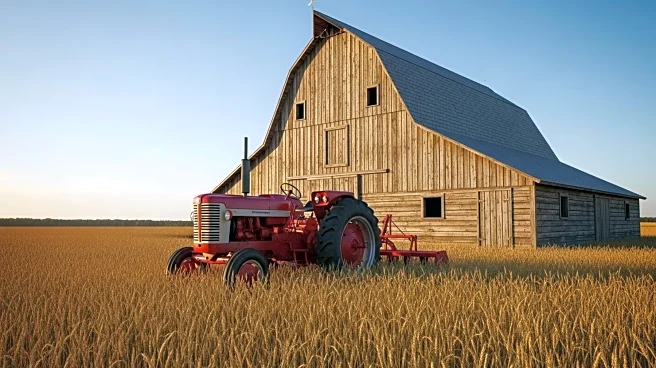What's Happening?
U.S. farmers are maintaining a steady sentiment regarding the agricultural economy, despite a decline in support for tariffs. According to a survey conducted by Purdue University and the CME Group, the Ag Economy Barometer Index rose slightly to 126, indicating optimism about the long-term outlook. However, the Index of Current Conditions fell, reflecting concerns over high production costs and weak crop prices. Farmers are hopeful that government support programs, like the Market Facilitation Program, will help mitigate the impact of low commodity prices. Confidence in tariffs has weakened, with only 51% of farmers believing they will strengthen the agricultural economy, down from previous months.
Why It's Important?
The shift in farmer sentiment regarding tariffs highlights the challenges faced by the U.S. agricultural sector amid ongoing trade disputes. As confidence in tariffs wanes, farmers are increasingly reliant on government support to sustain their operations. This situation underscores the importance of effective policy measures to support the agricultural economy and address the financial pressures on farmers. The decline in tariff support may also influence future trade negotiations and policy decisions, impacting the broader agricultural market.
What's Next?
Farmers are anticipating potential government aid to cushion the effects of low commodity prices, with many expecting a program similar to the 2019 Market Facilitation Program. The outlook for farmland values remains uncertain, with expectations for stability rather than growth. Policymakers may need to consider additional measures to support farmers and address the economic challenges posed by trade tensions and fluctuating market conditions.
Beyond the Headlines
The evolving sentiment among farmers may have broader implications for rural communities and the agricultural workforce. As farmers navigate economic pressures, there may be shifts in employment patterns and investment in agricultural infrastructure. Additionally, the reliance on government support raises questions about the sustainability of current agricultural practices and the need for innovation to enhance resilience in the sector.











